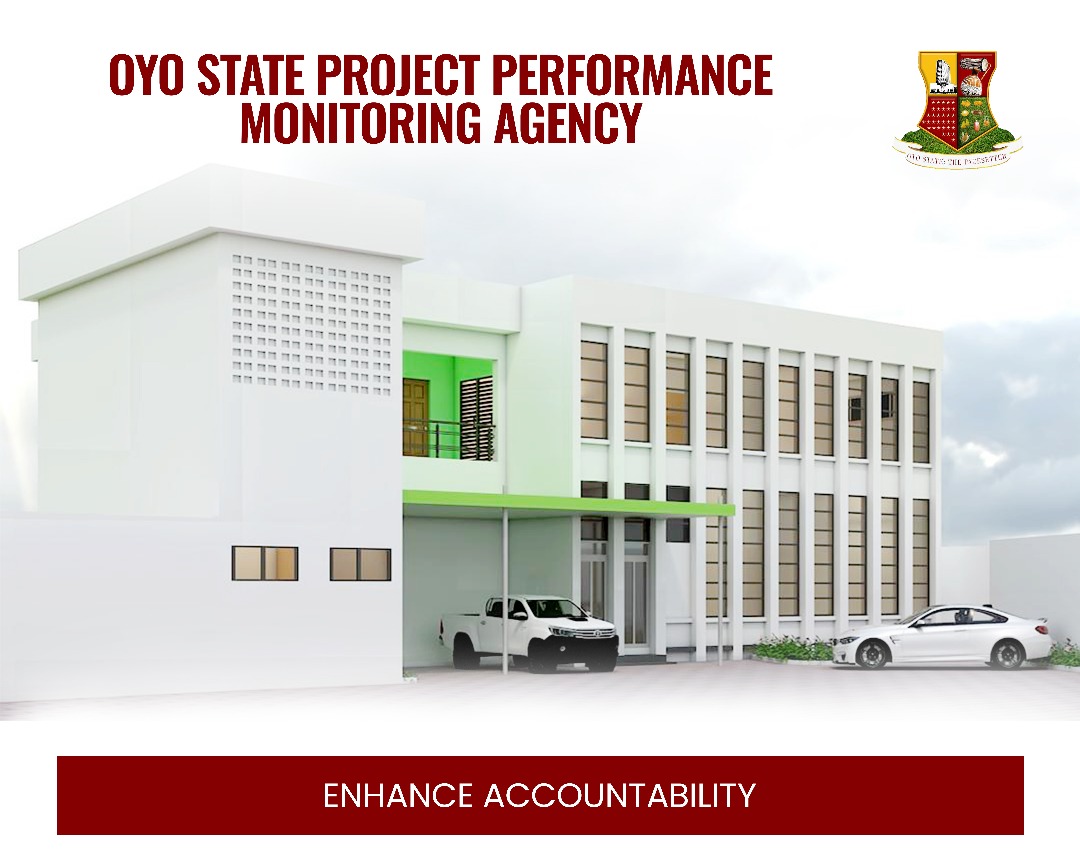Single mothers relive battle with hardship, discrimination in search of love
VICTOR AYENI of Punch Newspaper writes about how single mothers in Nigeria face stigmatisation, neglect, and financial difficulties, and how these factors result in mental health issues due to wrong perceptions
On most days of the week, Chisom Ezendu is often as busy as a bee, multitasking to put food on the table and provide shelter above her head and that of her daughter.


The single mother who resides in the Egbeda area of Lagos is a caterer, and house cleaner and also offers laundry services on the side.
Juggling the demands of work, raising a child, and personal growth, the 33-year-old who hails from Mgbakwu in the Awka North Local Government Area of Anambra State stated that the support she received from her family had kept her going.

Narrating how it all began to Saturday PUNCH, Ezendu said she found out she was pregnant when she was in a relationship with a man from a neighbouring state who later left the shores of the country for the United Arab Emirates.
Although they were in touch for a while when he reached his destination, his line had been unreachable since she informed him of being with child.
Recounting her experience, she said, “I didn’t plan to become a single mother, I was just too trusting and careless. I was just 22 years old then and I met this 27-year-old guy whom I liked.
“He was living with his elder brother in Lagos and we fell in love. He was already a graduate and working in an ICT startup outfit on the island.
“We began dating and after a while, he told me about the scholarship he won in the UAE, and after processing his visa, he travelled out of Nigeria. For three months, we were still communicating on the phone and he told me he had started his programme and we regularly talked about how it was going on.”
“When I discovered I was pregnant, I was afraid because I knew I was going to bear a huge responsibility for the choices I made, since I didn’t even carry my family along. When I informed him, he didn’t seem to be pleased with it and he suggested I do something about it.
“He stopped communicating with me since then. He and his family have never been responsible for his daughter from her infancy up till now, I have been the one taking care of her, and with the help of my immediate family. The stress I faced could have been less if I had a partner helping me to shoulder the responsibilities,” she added.
Single mothers stats
Online sources describe a single mum as a mother who does not have a husband or partner. An article titled, “Prevalence pattern and socio-demographic correlates of single motherhood in Nigeria,” published in the Sexuality Research and Social Policy journal, indicated that Nigeria has one of the highest prevalences of single mothers in the world and the prevalence pattern and socio-demographic correlates vary among ethnic clusters.
It stated, “Single mothers constituted 9.5 per cent of the population and, contrary to global patterns, were wealthier, more educated, and experienced less intimate partner violence. The prevalence ranged from 2.9 per cent in the North-West to 20.3 per cent in the South-South region.
“Age, IPV, being Fulani, Hausa, or Yoruba, and Islam lowered the odds of single motherhood while urban residence, education, wealth, number of children, and age at first birth increased the likelihood.
“The findings are important for policies to increase the acceptance of the plurality of family forms and end discrimination against single mothers. They also point to improving maternal healthcare services in rural areas, where the bulk of the single mothers reside, for improved maternal and child health outcomes.”
According to a study that was published in the BMC Public Health Journal, there were 1.7 million widows and over a million separated or divorced women in Nigeria between the ages of 10 and 85.
It went on to say that the high number of single-mother households in sub-Saharan Africa suggested that many children there were born and raised in such households.
An analysis of the Nigerian population by marital status by the Open Data for Africa published in the Nigerian Journal of Sociology and Anthropology showed that 50.01 per cent of the population were married, 0.86 per cent separated, 1.97 per cent were widowed and 46.44 per cent never married.
However, little is known about the never-married single mothers.
A survey of 25,000 households drawn across Nigeria’s 36 states and the Federal Capital Territory, by Kainos Edge Data Service in 2020 showed that the average household size in Nigeria was 3.4 persons.
This survey showed that approximately 11 per cent of Nigerian households were headed by single parents in contrast with approximately 16 per cent in the United States of America.
The prevalence of single motherhood is not limited to Nigeria. Globally, there are 101.3 million lone mothers who live alone with their children.
According to the Pew Research Centre, the US has the highest share of single parenting in the world. In the US, about 20 per cent of children live with just their mother while around five per cent live with just their father.
The United Kingdom is said to have the second-highest rate of single-parenting.
In the US, about 67.4 per cent of single mothers are white, 24.7 per cent are black, 21.7 per cent are Hispanic or Latino, 7.5 per cent are Asian, and 3.9 per cent are of other races, according to the Gitnux Market Data report of 2024.
‘People assume I’m sexually loose’
A 37-year-old single mother, Mabel Isiekwene, told our correspondent how she was treated by her family and church when she became pregnant out of wedlock.
Isiekwene, who hails from a town in the Anioma Local Government Area of Delta State, lamented she had had to endure needless jokes and ridicule because she is a single mother.
“I came from a family that belonged to a strict religious group and when I became pregnant at the age of 24, it nearly made my parents lose their standing in the congregation. I was singled out and shamed.
“I was branded with the sin of sexual misconduct and made to stand before a committee set up by the church group. The committee was chaired by three men who derogatorily asked me to disclose intensely private things about the affair to them, but I refused because I believed whatever sin I committed was between me and God.
“Eventually, they declared that I was ‘unrepentant’ and was disfellowshipped,” she said.
Speaking further, she added, “I had to move out of my parent’s place and things haven’t been easy since then. I began to hustle by doing different businesses from sewing to online writing.
“The only good thing that came out of this is the support I have received from several people around me. But I’ve also been at the receiving end of off-colour remarks, demeaning jokes, and insults. Some people immediately assume that I am sexually loose because I’m a single mother but I am not any of these things.”
Seeking love on social media
Checks by Saturday PUNCH showed that many single mothers have formed groups on social media platforms through which they connect with men who are searching for serious relationships.
Our correspondent joined two Facebook groups with over 72,000 members from different countries where Nigerian single mothers request male friends and potential dates.
In the Facebook group, ‘Single Mothers in Nigeria’ with 12,000 members as of Wednesday evening (March 27, 2024), posts designed for single mothers to post their photos in the replies and disclose their locations were often the most engaged by members.
One of the members of the group, Ada (surname withheld), said single mothers deserved to love and be loved just as everyone else.
“I have a son whom I love, that doesn’t make me a bad person. That we are single mothers doesn’t mean we can’t be loved or shouldn’t love others. I lost my husband and I would love to remarry.
“I believe our society has been unfair towards single mothers because I read some comments from some women and men and they attach a very negative label to single motherhood. There are some disrespectful comments people make and these things hurt.
“Even in the church, I don’t feel a sense of belonging to the singles group and also the married women’s group, so it’s a lonely life,” she told our correspondent in a chat.
In another Facebook group, ‘Single Mothers,’ its female members seemed to enjoy a degree of freedom to post their personal photos and request dates from male members.
Our correspondent observed that some men who were members of the group often solicited sexual affairs from single mothers within the group.
“Don’t be surprised, some of the men here are married with children, they just want to hit on us because they believe single mothers are desperate and will yield just to any man to fend off the stigma attached to single motherhood.
“Some of them are just ‘hit and run;’ they see us as hook-up babes and do not think we deserve any respect. I’m not desperate to date, and I don’t date younger men,” a single mother who gave her name as Ibukun told Saturday PUNCH.
Another single mother in the group, Rofiat, lamented, “I have had a man insult me for being a single mother. He asked me out but I didn’t like the fact that he smokes cannabis, so I respectfully declined to go out with me.
“He called me unprintable names. I heard a housing agent suggesting that my waywardness made me a single mother and he was even trying to convince my former landlord that they should not rent a space to me. I was so angry; the way some men treat and talk to us is really bad.”
On the About page of a private Facebook group, Single Heart Parenting, its administrator who introduced herself as a family therapist, Oyinlola Yetunde, wrote, “I am a product of a single parent and have gone through that part, so I know how it feels to be one and the kind of perception society has for a single parent.
Yetunde said that as a relationship coach and family therapist, she discovered that most single parents were often looked down on by society.
“The moment you are a single parent, especially a single mother, it’s your fault because you don’t want to stay under a man’s authority or you are a wayward person, forgetting that the reason for the failure of marriages is difficult to pinpoint because each couple has its uniqueness,” she added.
Our correspondent gathered that there are also several Instagram pages, as well as Telegram and WhatsApp groups that serve as platforms for single mothers in Nigeria to interact and meet prospective suitors, social workers, women activists, and therapists.
An Instagram page named, “Naijasinglemoms,” in a post dated July 6, 2023, identified polygamy, domestic violence, rape, and death of a spouse as some common reasons women become single mothers.
“A lot of women accept living in polygamy, the same way we have many who do not want to be in such because they value their mental health and peace of mind. If polygamy is your choice for becoming a single mum, then your decision should be acknowledged,” it stated.
“A high rate of domestic violence in relationships/marriage is turning into something else. This is a life-threatening situation that most single mums face, knowing their child or children need them to be alive, they have to leave.
“It’s not so common because most women that go through this experience may not be proud of it so they rather keep it to themselves and become single parents.
“A mother who has lost her husband is also a single mother, left with no choice but to raise the child or children alone all by herself. It can also be any of the above reasons except the death of a spouse.
“Most times, divorce partners have shared custody of the child/children because the marriage was done legally,” it added.
On the online dating app, Tinder, single mothers seem to enjoy a greater degree of privacy due to the different dynamics involved in its design.
Users of the geosocial networking application usually swipe toward the right to like other users’ profiles and swipe to the left to dislike their profiles.
When users return the likes they received, a ‘match’ is created by the app which enables both users to chat privately with each other, though they cannot send or receive personal voice or photo messages.
Tinder profiles often include a photo, a short biodata, and some of the interests of the users. Users can also set the age range, distance, and gender of whose profiles they want to see.
A perusal of various Tinder profiles by our correspondent showed that several users do indicate their single motherhood status on their profiles.
A user, who gave her name only as Remilekun stated, “I’ve received much love here, even from single men. I’ve met married men, divorced men, and widowers here who are eager to marry single mothers.”
Faced with financial challenges
A Nigeria-based non-governmental organisation, Singularly Me Mothers Support Initiative, in a December 2021 post, shared the story of a single mother also battling physical challenges.
The woman who gave her name as Titi, narrated the financial constraints she was plunged into after being involved in a car crash that led to a fracture on her legs.
“I am a single mum of a cute boy. I was involved in a fatal motor accident on February 19, 2010 that took the lives of 13 people; I was the only survivor, but I had fractures on both legs.
“Two years later, I lost my elder sister who was taking care of me, and there was no money to enable me to go for my last surgery to use my legs again. But all of these didn’t deter me. I thought I needed to do something to enable me to take care of myself and my son,” the post signed by the founder of SiMMSI, Dr Ibidolapo Ijarotimi, stated.
“A friend of mine came with netting twine bags and she told me she was selling them for her cousin. They were so beautiful and I bought one of them. I decided to learn how to make them, and I called the lady who netted the bags.
“We agreed on the price she would collect and the days she would be coming to teach me. Now, I have learnt and I am a boss of my own, though the market is very slow now.
“I do craft work to inspire myself not to rely on anybody because I cannot give up,” the post added.
Commenting on the plight of single mothers, a family coach, Mr Philemon Solomon, noted that society needed to financially support and empower single mums.
He explained, “Many single mothers are responsible for providing all of their family’s needs, hence financial instability is a common challenge they face. This is even made worse by their restricted access to social support networks and well-paying employment.
“Beyond financial challenges, single mothers in Nigeria also contend with societal stigma and judgment. They often face discrimination and are sometimes ostracised, making it difficult to access support networks.
“This isolation can take a toll on their mental health, yet many find solace and strength in their role as mothers, dedicating themselves wholeheartedly to their children’s well-being.
“There are many misconceptions regarding single mothers and a lot of the stereotypes around the typical single mother are either unfounded or inaccurate because they have a wide range of backgrounds and experiences, so they should be supported by individuals, faith-based organisations, and non-governmental organisations.”
Single mothers need mental, social support – Experts
Speaking with Saturday PUNCH, a psychotherapist and cognitive behavioural specialist, Micheal Jacob, described the experiences of single mothers as tough, noting that many of them were saddled with responsibilities that led to chronic stress and burnout.
“Imagine having to juggle work, taking care of the kids, and managing the household all on your own, and on top of that, there’s the stress of making ends meet and worrying about the future of the kids. Many of the single mothers in Nigeria I have had sessions with often feel overwhelmed, stressed out, and even lonely at times,” Jacob said.
“Some of the possible issues they could be affected by include chronic stress balancing work, childcare, and household responsibilities alone can be overwhelming and lead to chronic stress and burnout which can affect their mental and psychological state.
“You will agree with me that many single mothers in Nigeria face financial challenges, and that is the source of many NGOs directed towards them. Such financial strain can lead to feelings of inadequacy which can lead to depression, and in turn, affect their mental and emotional state.
“Without a partner to share responsibilities and emotional support, single mothers may also experience feelings of isolation and loneliness which negatively impact their mental state. They may also experience guilt about the circumstances that led to their single-parent status, especially with the cancellation of culture towards single mothers in Nigeria. These feelings of shame can lead to an ill mental state,” he added.
He further explained that single mothers needed social support as connecting with other parents facing similar challenges could reduce feelings of isolation and provide valuable emotional support.
According to him, they need someone to listen to them, to understand what they’re going through, and to lend a helping hand when things get tough. This, he said, could be friends and family.
“Access to affordable therapy will also go a long way. Offering financial assistance programmes, such as childcare subsidies, housing assistance, or job training programs, can help alleviate financial strain and empower single mothers to provide for their families.
“Companies could also consider flexible work options for single mothers. These and many more can help alleviate the mental, emotional, and psychological issues single mothers in Nigeria face,” he added.
Also, a professor of Counselling Psychology at the University of Lagos, Ayodeji Badejo, noted that single motherhood was conditional and hinged on teenage pregnancy, divorce, abuse, and the unwillingness of a partner to shoulder responsibility.
She added that single motherhood came with its challenges and psychological issues since most of them bore the responsibility of their children’s welfare alone.
“The psychological effect can also transcend to the child because there is no father figure and they develop low self-esteem; women with strong personalities can influence their children positively.
“Sometimes, single mothers are short-tempered because they have a lot to deal with. But they shouldn’t let the stigma make them lose their self-esteem or affect them negatively.
“They should forgive themselves so that they don’t bleed on the good men and mess up their new relationships. Don’t throw a pity party. Level up for the sake of your children and don’t get into a relationship that will put you or your children at risk,” Badejo said.
The professor also advised single mothers to seek therapy and counselling, adding that they could join groups and communities for single mums to recover especially if they developed suicidal thoughts.
She further called on people to be more emotionally intelligent and not perceive single mums as promiscuous or useless.
“They (single mums) have to learn how to get into the dating pool again. They have to learn to carry themselves and probably get a coach on etiquette and learn that there is a dating pool for them,” Badejo added.

